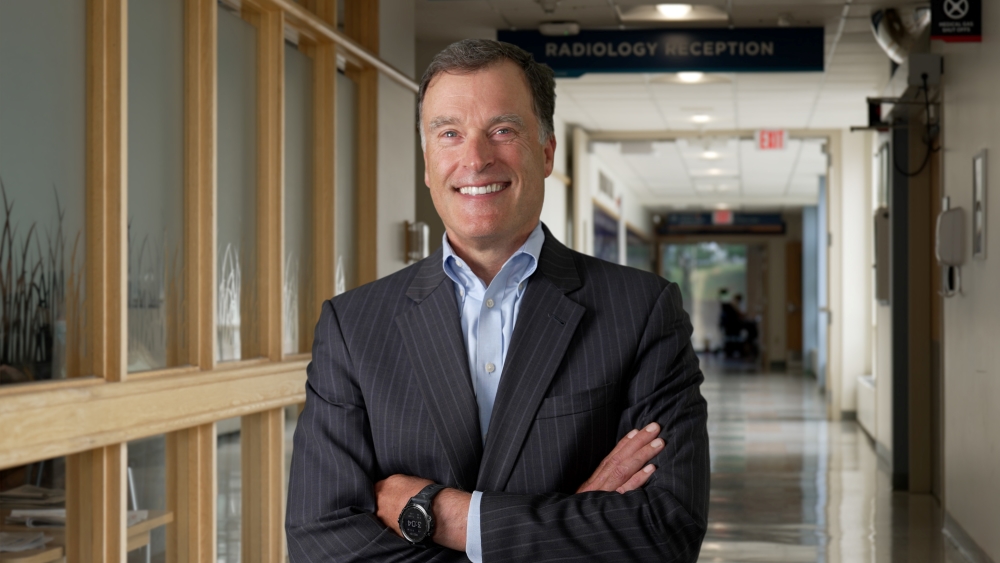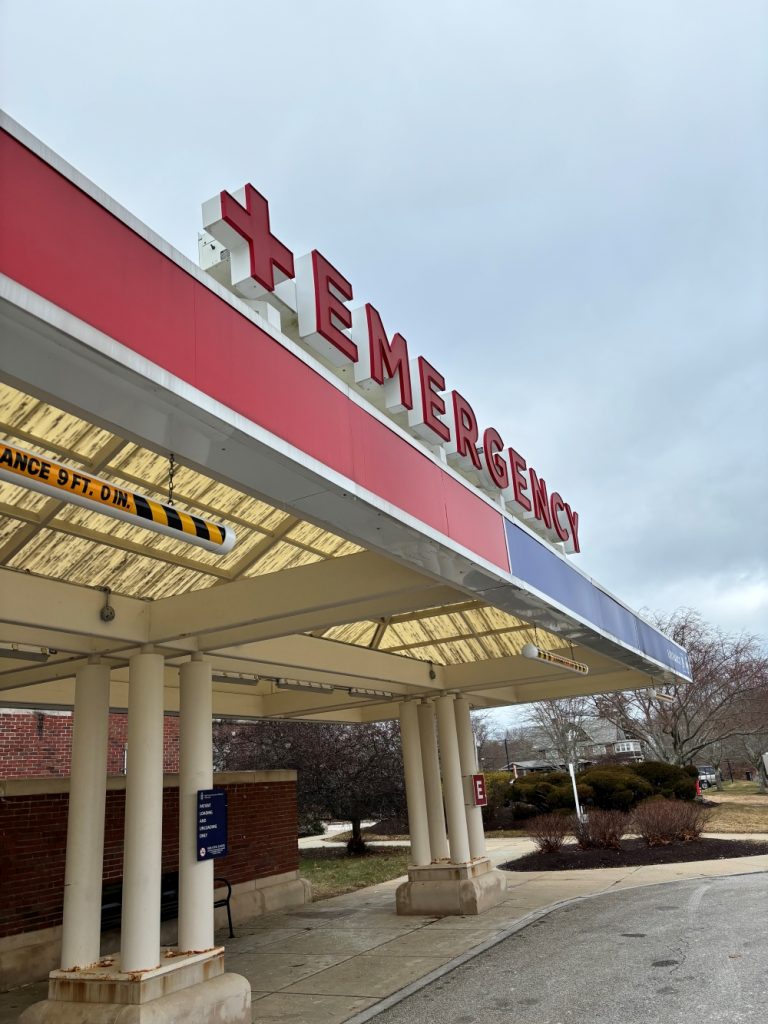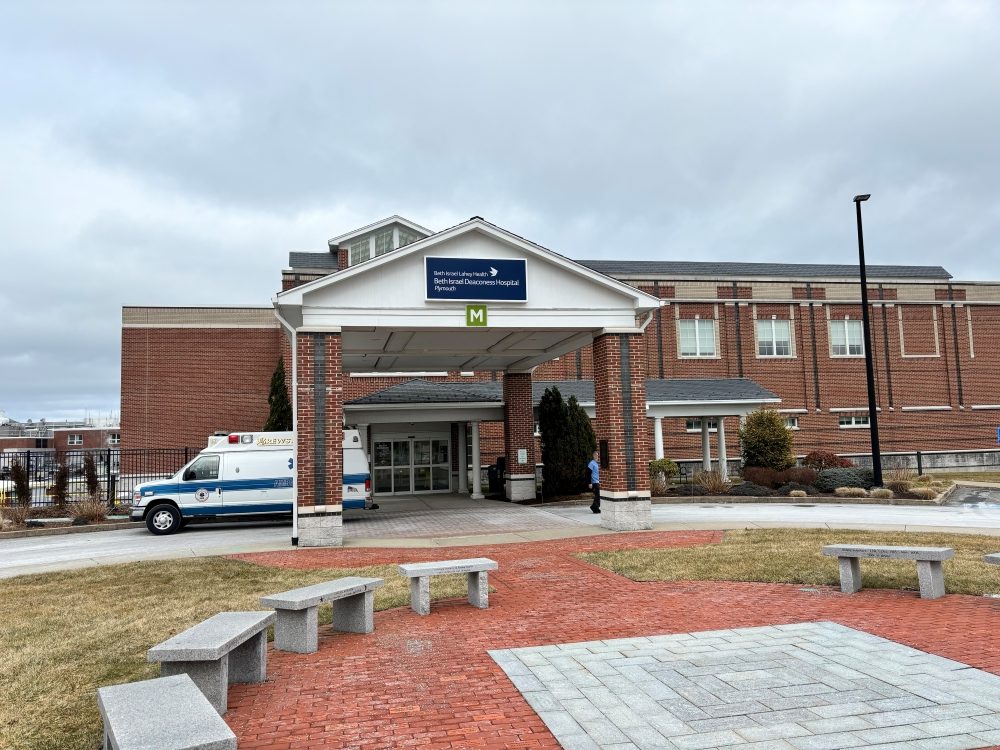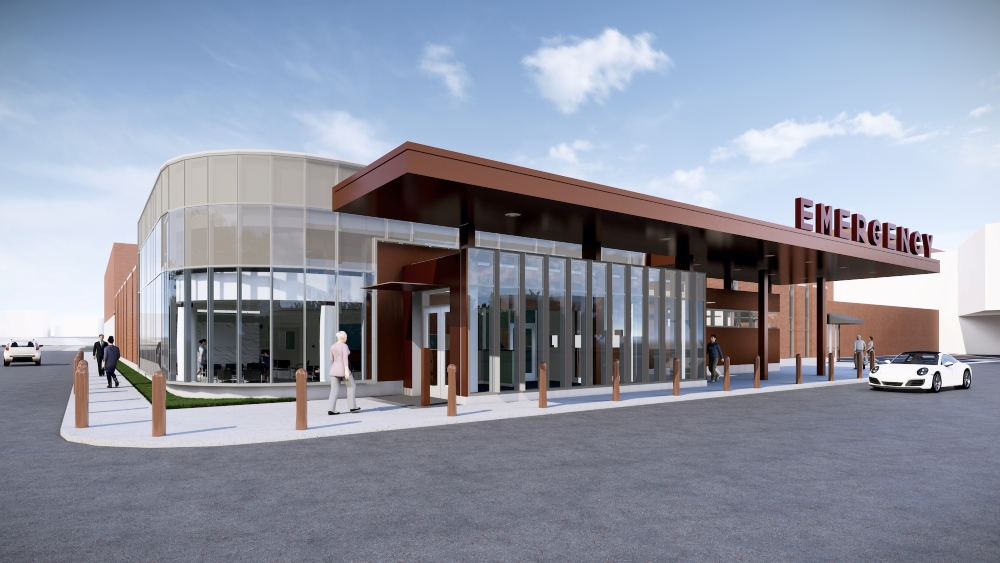Beth Israel Deaconess Hospital-Plymouth will double the size of its emergency department and expand cancer treatment programs to meet the needs of the growing and aging population in the region.
After several reviews by town boards and engineering staff, the emergency department expansion received final town approval last week. The project must now be reviewed by the Massachusetts Department of Public Health. If the state approves, which is expected, the hospital plans to start construction in the fall.
In February, the state DPH approved the hospital’s plan to operate a second radiation therapy facility, which will begin treating cancer patients this summer. In addition, a new and significantly expanded clinic for patients receiving chemotherapy is in the final planning phase.
“When I took this job in 2016, the first thing that I did was start to work on the emergency department,” said Kevin Coughlin, president of BID-Plymouth. “The need was obvious to everyone. And my family gets their care here, so I know personally that it’s a tough environment to be a patient in and a tough environment to work in.”
The current emergency department was built in 1993 and designed to handle 27,000 patients a year. This year, 46,000 people are expected to seek treatment there, often waiting hours to see a physician. Many patients are placed in “hallway beds,” which are just what they sound like, because there aren’t enough treatment rooms to handle the volume.
Coughlin said the plan to expand the emergency department was almost ready to go in 2020 but was put on hold when the pandemic hit. The project got back on track last year and was presented to the Plymouth Center Steering Committee in January for review and feedback.
“It was well received, because I think this is very much needed,” said Clare Montanari, Precinct 4 Town Meeting member and chair of the steering committee. “People are embracing it. To have a hospital so close is a real asset for us.”

The Planning Board and staff at the Department of Public Works also reviewed the plan and requested several technical changes that were incorporated by the hospital’s design team. Final local approval came on March 18 when the Zoning Board of Appeals unanimously granted the special permits needed for the project, after securing a commitment from the hospital that new parking spaces near the emergency department would be a minimum of 10-feet wide.
“This community needs a world-class hospital, and I believe Beth Israel is that,” said ZBA chair Michael Main. “I have been going there now for almost four years with my wife, and they have done a spectacular job.”
The emergency department will grow from 14,434 square feet to 29,000. That includes an 8,000 square foot addition to the building, and the reconfiguration of adjoining space within the hospital.

The existing emergency department has four private treatment rooms, plus 13 treatment beds separated by curtains, and 15 hallway beds. The expanded emergency department will have 37 private treatment rooms and no curtain or hallway beds. In addition, the new emergency department will feature a 16-unit secure treatment area for patients who present with behavioral or substance abuse issues.
A second triage station to assess incoming patients will be added, doubling the flow-through. Workstations for nurses and physicians will be improved. The expanded emergency department is designed to accommodate up to 65,000 patients per year.
“We are building to meet the anticipated demand for several decades,” Coughlin said.
If the hospital begins construction in the fall, the new emergency department is scheduled to be completed in late 2027. “It’s a long project, because we have to do it in phases,” Coughlin said. “The emergency department has to stay open, 24-7, throughout construction.”
To make room for the expansion, the hospital will move its oncology infusion clinic to Cordage Park in North Plymouth. The new clinic there will triple the size of the existing one and be operated in partnership with Beth Israel Deaconess Medical Center in Boston, Coughlin said.
“We are expanding not just the physical footprint, but in partnering with our academic medical center (BIDMC) in Boston, we will expand the type of services we deliver,” Coughlin said. “It will give us the capacity to do a lot of things we can’t do here now, including clinical trials.”
The capacity to provide radiation therapy for cancer patients will soon double, when a second linear accelerator at the hospital goes into service.
BID-Plymouth has had two linear accelerators on site since 2021, when it installed a new machine with added capabilities for treating very small lesions in the brain and lung. At that time, however, the hospital only had state approval for one radiation therapy machine, so the existing unit was moth-balled.
But as demand for radiation therapy grows, and certain new techniques require longer treatment times, the hospital asked the state for permission to reactivate the older machine, which can still deliver state-of-the-art radiation care for many patients.
In its application to the state, the hospital presented data from the Advisory Board Cancer Incidence Estimator projecting cancer incidence in the greater Plymouth area will increase by 9.6 percent between 2020 and 2025 and by nearly 17 percent between 2020 and 2030, largely driven by demographics, “due to higher incidence of cancer with age.”

Dr. Chris Andreoli, CEO of Atrius Health, which opened a new clinic off Long Pond Road in February for its 30,000 patients in the region, said both the expansion of the emergency department and cancer treatment programs at the hospital are important for the community.
“The population in Plymouth County is growing rapidly, and we are all aging, which means the overall burden of disease in the community is growing,” Andreoli said. “We are very supportive of the hospital’s efforts.”
Andreoli and Coughlin said that Atrius and BID-Plymouth clinical teams work closely together, because they are caring for the same patient populations.
“We work together to keep patients out of the hospital, if possible. And for patients who need to be hospitalized, we help coordinate care and provide wrap around services after they are discharged,” Andreoli said. “We like to see our patients get the high-quality care they need locally, rather than having to drive into Boston.”
The total cost of the new emergency room and oncology-infusion center at Cordage Park are not finalized, though the projects are “locked in” and will be built Coughlin said.
“The population here is growing like gangbusters and right now and we don’t have the footprint to take care of all the people who would like to get care here,” Coughlin said. “As a not-for-profit institution, our job is to make enough margin so we can grow this place into what it needs to be, but as I tell my leadership team every day, we are not here to make money. We are here to take care of people and provide them with the services they need.”
Michael Cohen can be reached at michael@plymouthindependent.org.

